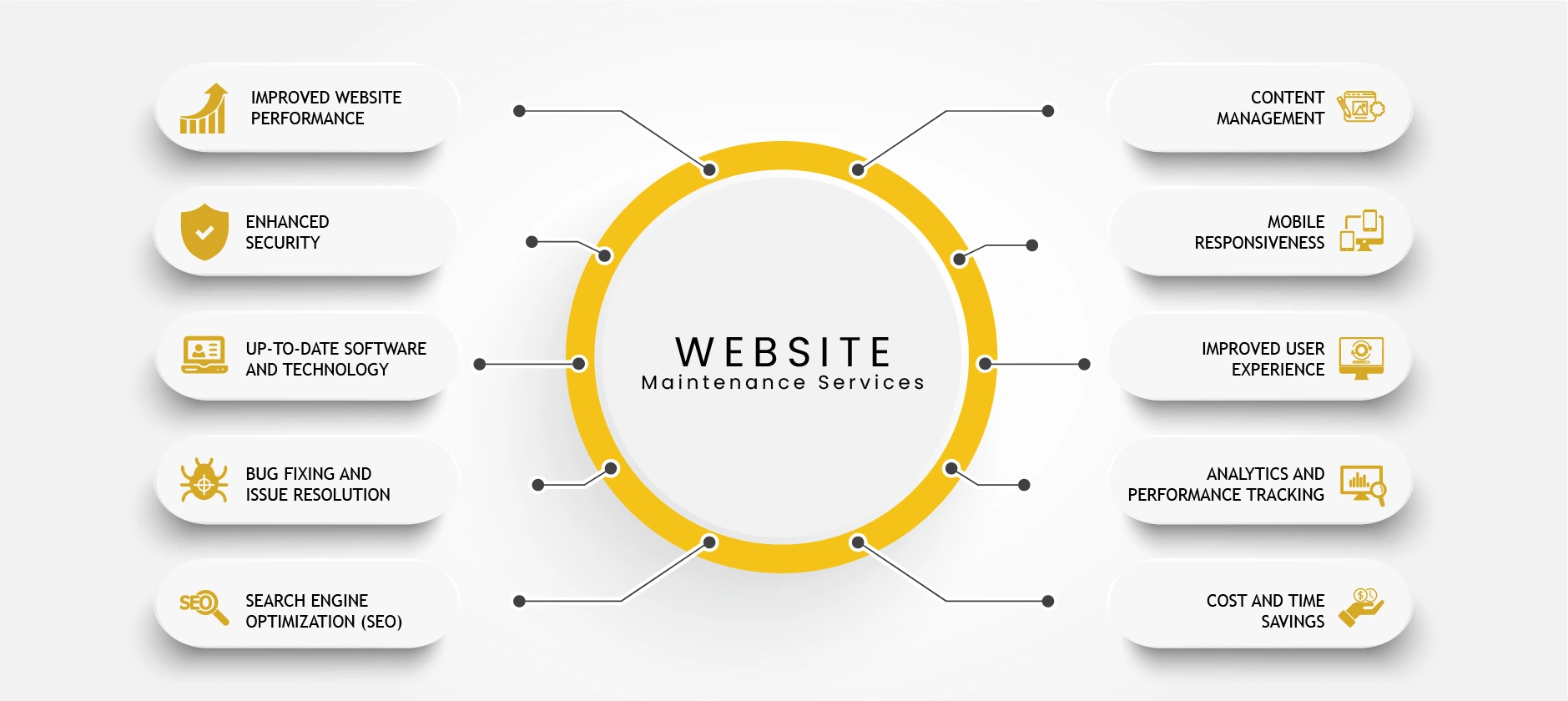
When you build a website and launch it online, you might feel like the job is done. After all, the site is live, and everything seems to be working well. However, for websites—especially dynamic ones like e-commerce stores (Woocommerce, WordPress, Magento, Joomla etc.)—the job isn’t finished once the site is deployed. In fact, it’s only just beginning.
1. Security Protection
Security should be one of the top priorities for any website. Cybersecurity threats are constantly evolving, and websites are frequently targeted by hackers. Many of the issues arise from outdated software, plugins, and third-party integrations like payment gateways. These are common vulnerabilities that hackers can exploit if not regularly updated.
Web development platforms and plugins, like those used in Woocommerce and WordPress, release frequent updates to fix security flaws and patch vulnerabilities. Ignoring these updates exposes your website to potential breaches, data theft, and even customer trust loss. Regular maintenance and updates ensure that your site stays secure and protected against evolving threats.
2. Performance and Speed
A website’s performance is crucial for user experience and SEO rankings. If your website’s code is outdated, it could cause slow loading times, broken functionality, or crashes. Regular updates can help optimize website performance by ensuring that the latest code optimizations are implemented. Performance issues may not be immediately noticeable, but they can drastically affect your customers' experience and your website’s visibility.
3. Compatibility with Third-Party Solutions
Many websites rely on third-party tools, plugins, and integrations (like payment gateways, shipping solutions, or marketing tools) to function properly. These services regularly update their software to ensure compatibility, improve performance, and fix bugs. If you delay these updates on your website, you risk creating compatibility issues that could break these integrations, leaving your customers unable to make purchases or access your services.
4. Legal and Compliance Issues
For e-commerce websites, maintaining compliance with privacy laws (such as GDPR) and industry standards is crucial. Regulatory requirements change, and failing to update your website to meet these legal obligations could result in fines or other legal consequences. Regular updates ensure that your site meets current standards and is legally compliant, protecting your business from any potential legal repercussions.
5. Backup and Data Integrity
Imagine losing all your customer data, product listings, or transaction records because of an unforeseen issue. Regular backups are critical for data recovery. An up-to-date backup system can ensure that your website is restored quickly in case of any issues, such as a hack, server failure, or human error. Without regular updates, your backup system may not be compatible with your website’s current structure, rendering it ineffective in a crisis.
6. User Experience and SEO
Search engines, like Google, favour websites that are regularly updated. Outdated websites tend to have slower loading speeds, broken links, or non-functional features—factors that can hurt your search engine ranking. Regular updates not only improve website functionality but also ensure that SEO best practices are followed, making your website easier to find by potential customers.
7. Cost of Neglecting Updates
You might think that skipping updates or deferring maintenance will save you money in the short term. However, in the long run, neglecting updates and maintenance can lead to bigger issues that are more expensive to fix. If your website breaks due to outdated software or becomes vulnerable to a security breach, the cost to repair it and regain customer trust can be significant.
You have two options: invest in regular maintenance and updates now or pay much higher costs later to fix problems caused by neglect. Professional development companies bill for the hours spent on these essential tasks, which may seem like an additional expense. However, these costs are small compared to the potential damage from ignoring maintenance.
Conclusion: The Value of Ongoing Support
The truth is, building a website is just the first step. Just like your physical business premises require regular upkeep; your website needs consistent care. Without regular updates and maintenance, your website may become obsolete, vulnerable, and unusable. This will not only hurt your business operations but also your customer trust and bottom line.
Consider regular maintenance a long-term investment in the health, security, and success of your website. By staying proactive, you can ensure your website continues to perform well, stay secure, and meet the needs of your business and customers.
If you're unsure about how to maintain your website or need professional support, don't hesitate to reach out to a trusted development team. Investing in this service now will save you both time and money in the future.